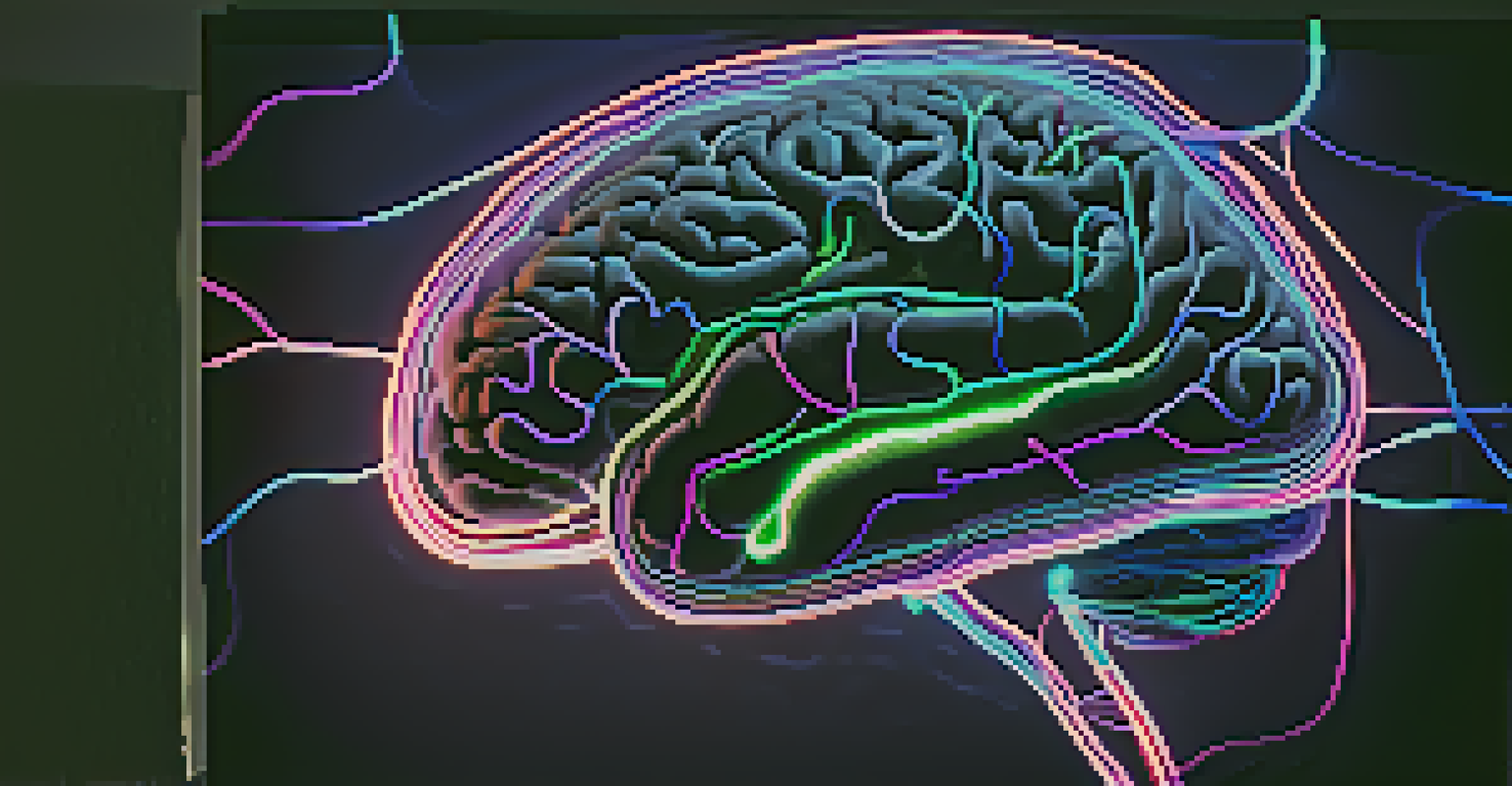Psychedelics and Mental Health: Evidence-Based Outcomes

Understanding Psychedelics: A Brief Overview
Psychedelics are substances that alter perception, mood, and cognitive processes. Common examples include psilocybin (found in magic mushrooms) and LSD. These substances have been used in various cultures for centuries, often in spiritual or therapeutic contexts.
Psychedelics can help us to confront the deepest parts of ourselves and to heal from profound trauma.
In recent years, there has been a resurgence of interest in the potential therapeutic benefits of psychedelics. Researchers are investigating their effects on conditions such as depression, anxiety, and PTSD, leading to a growing body of evidence supporting their use.
Understanding the history and science behind psychedelics is crucial for recognizing their potential in mental health treatment. As we delve deeper, we'll explore the evidence-based outcomes that highlight their effectiveness.
The Science Behind Psychedelics and Mental Health
Studies suggest that psychedelics may promote neuroplasticity, which is the brain's ability to adapt and reorganize itself. This means they could help individuals break free from entrenched negative thought patterns often seen in mental health disorders.

Research has shown that psychedelics can increase serotonin levels, leading to improved mood and emotional regulation. This biochemical response is particularly relevant for those suffering from depression and anxiety, where traditional treatments may fall short.
Psychedelics Aid Mental Health
Research shows that psychedelics like psilocybin and MDMA can significantly alleviate symptoms of depression, anxiety, and PTSD.
By understanding the science behind these substances, we can appreciate their potential role in reshaping mental health treatment. This understanding lays the groundwork for discussing specific outcomes from recent studies.
Psychedelics in Treating Depression: Evidence from Studies
Recent studies have demonstrated that psychedelics, especially psilocybin, can significantly reduce symptoms of depression. In clinical trials, participants reported feeling a profound sense of relief after just one or two sessions.
The therapeutic potential of psychedelics is not just about reducing symptoms; it's about transforming the way we engage with our inner lives.
One landmark study published in 2020 showed that psilocybin therapy resulted in substantial improvements in depression scores, with many participants maintaining these benefits for months after treatment. This finding challenges the notion that depression requires lifelong medication.
These results point to the possibility of psychedelics as a viable alternative or complement to traditional antidepressants. As we look at the data, it's clear that there's something promising in this approach.
Exploring PTSD Treatment with Psychedelics
Post-Traumatic Stress Disorder (PTSD) has long been a challenging condition to treat. Recent studies suggest that psychedelics may offer a novel way to help individuals process traumatic experiences and reduce symptoms.
Research involving MDMA, for example, has shown promising results in helping patients confront and process their trauma. In a clinical trial, participants reported significant reductions in PTSD symptoms after undergoing therapy with MDMA.
Importance of Set and Setting
The mindset and environment during psychedelic therapy play a crucial role in enhancing therapeutic outcomes.
These findings highlight the potential of psychedelics to transform PTSD treatment. By fostering a safe space for emotional exploration, they may offer hope to those who have struggled for years.
Addressing Anxiety: How Psychedelics Can Help
Anxiety disorders affect millions, often leading to debilitating consequences in daily life. Recent research suggests that psychedelics could be effective in alleviating symptoms of anxiety, particularly in terminal illness patients.
One study found that patients with life-threatening cancer experienced reduced anxiety and improved mood after receiving psilocybin-assisted therapy. Participants reported a greater sense of peace and acceptance regarding their situation.
Such findings underline the potential for psychedelics to provide relief in high-stress situations. As we gather more evidence, the hope is that these substances can become part of a comprehensive treatment strategy for anxiety.
The Role of Set and Setting in Psychedelic Therapy
One crucial aspect of using psychedelics therapeutically is the concept of 'set and setting.' This refers to the mindset of the individual (set) and the physical and social environment (setting) during the experience, both of which play a significant role in outcomes.
Research indicates that a supportive environment and a positive mindset can enhance the therapeutic effects of psychedelics. This means that the presence of trained professionals during sessions can lead to more beneficial outcomes.
Ethics in Psychedelic Research
Responsible research practices, including informed consent, are essential to ensure the safety and well-being of participants in psychedelic studies.
Understanding how these factors influence experiences helps to create a safer and more effective therapeutic framework. As we continue to explore this field, prioritizing set and setting will be key to maximizing the benefits of psychedelics.
Ethical Considerations in Psychedelic Research
As interest in psychedelics grows, so do the ethical considerations surrounding their use. Ensuring that research is conducted responsibly and safely is paramount to protecting participants and the integrity of the science.
Ethical guidelines stress the importance of informed consent, where participants fully understand the potential risks and benefits of the treatment. This transparency fosters trust and ensures that individuals are making educated decisions.

Navigating the ethical landscape is essential as we advance in psychedelic research. By adhering to these standards, we can ensure that the focus remains on health and well-being.